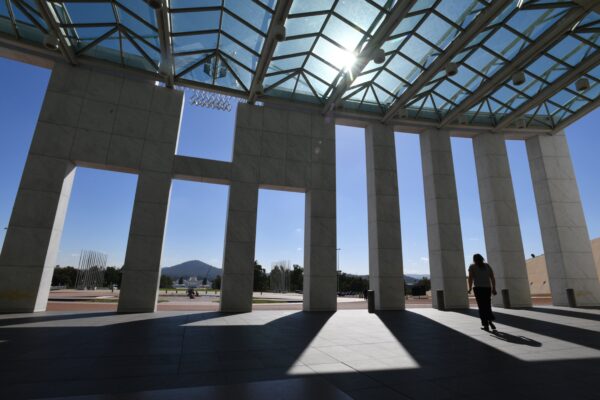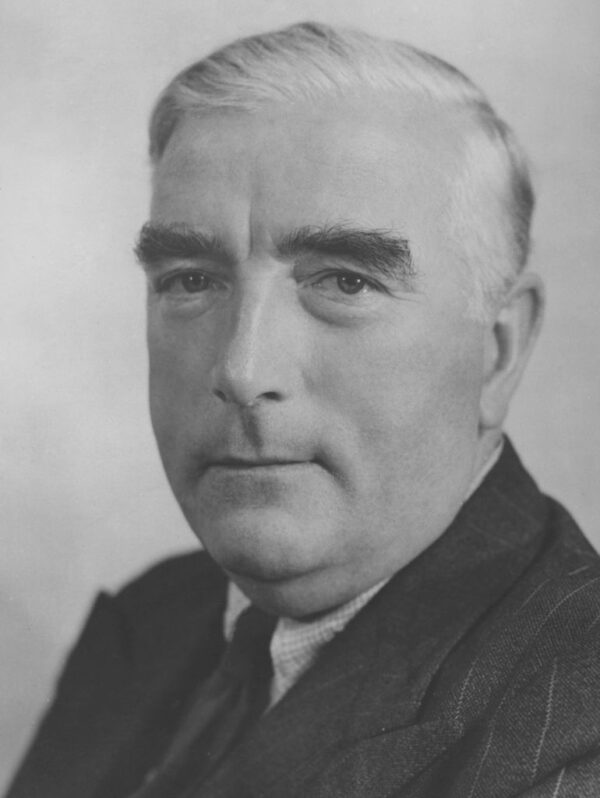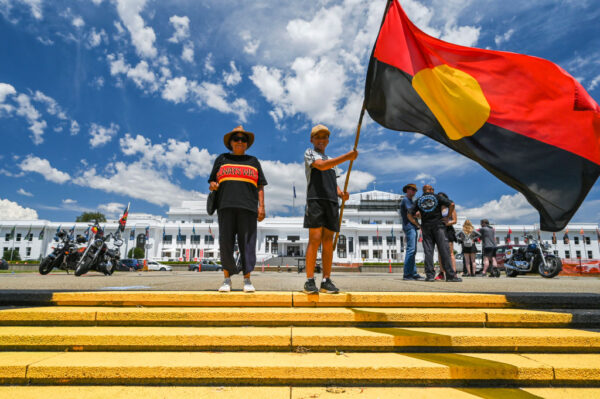Should the Liberals Have Enabled ‘The Voice’ Referendum for the Sake of Conversation?
Commentary
Earlier this week, the Australian Senate passed legislation enabling the Albanese government’s promised Voice to Parliament referendum. In the next six months, Australians will make a special pilgrimage to the ballot box, one they have not made since 1999.
While 52 senators voted for the Constitution Alteration (Aboriginal and Torres Strait Islander Voice) 2023, 19 senators, just over one-quarter of the chamber, opposed it.
There are, invariably, some Liberal (Australia’s centre-right party) senators who support the Voice, and I have previously argued that they are seriously misguided in doing so.
What surprises me is that several Liberal senators who do not support the Voice voted to enable the referendum—to have the conversation, we might say.
Shadow Attorney-General and Deputy Leader of the Opposition in the Senate, Michaelia Cash, justified her and her colleagues” collective decision during debate time, reassuring us that whilst the Liberal Party does not support the Voice, it does “believe in the people of this nation and their right to have a say.”
Indeed, a similar incident recently occurred in my native state of Queensland; the Liberal National Party under David Crisafulli supported Labor’s legislation enabling the Queensland Government to negotiate and enter into treaties with Aboriginal Australian groups.

All this gives rise to an epistemological query of some proportions.
Is it more liberal, in the Menzian sense of the word, to have the conversation for conversation’s sake, to engage in a referendum no matter its risk? Or, is the responsible thing actually to protect the nation’s peoples from the most illiberal of ideas, even if one might be accused of curtailing the ultimate democratic process?
Should the Liberal Party, its manifesto considered, have voted to enable the Voice to Parliament referendum?
Where Would Menzies Have Stood?
To decipher answers to these questions, let us first briefly consult one masterpiece by Sir Robert Menzies. International readers may recall that Menzies, Australia’s longest-serving prime minister of nearly 19 years, founded the Liberal Party in 1944.
Menzies” “We Believe” statement is a 1954 declaration of 17 propositions that he offered to commemorate the Liberal Party’s 10th anniversary. For me, it underpins the core tenets of what it means to be a Liberal.
I also take the defensible view that Menzies hierarchically ranked these propositions in order of importance.
For example, it is no accident that Proposition No. 1, “WE BELIEVE IN THE CROWN,” begins the declaration. The Crown is, as Menzies declares, “the embodiment of our national unity” and must be considered supreme by virtue of the fact that it sits at the apex of the Australian Constitution.
Proposition No. 2, “WE BELIEVE IN AUSTRALIA,” logically follows, for no nation can properly exist free of a symbol that would codify in perpetuum its values—in Australia’s case, the Crown.
Proposition No. 3, “WE BELIEVE IN THE INDIVIDUAL,” sensibly comes next, for not only do individuals require an organised nation-state to call their own, but they also require that nation-state be predicated upon fundamental values that establish its culture, laws, and purpose.
Without these two essentials, individuals are little more than anarchists.

To afford Australians the individual choice of participating in a referendum on the Voice to Parliament is to champion Proposition No. 3—‘WE BELIEVE IN THE INDIVIDUAL.”
But to defend Australia, and thus its national community of individuals, from the Voice, an irrefutably bad idea, is not only to uphold Proposition No. 3 but also Proposition No. 2—”WE BELIEVE IN AUSTRALIA.”
Thus, we might initially conclude that, from this brief survey of (arguably) Menzies’s most definitive political tract, Menzies himself would have voted against the legislation enabling the Voice referendum for contravening the Liberal Party’s most elementary ideologies.
I think I may also remark that Menzies would quickly have designated the Voice an illiberal and anti-Liberal scheme and would have ferociously opposed it on those grounds too.
We Can Have a Debate Without the Price Tag
Next, we might demand of ourselves a literal cost-benefit analysis.
Some $365 million (US$247 million) is being allocated by the federal government for this referendum.
If the Australian people vote the Voice down, which increasingly seems what they are likely to do, millions of taxpayer dollars will have been spent for naught.
Is such waste, in a cost-of-living crisis, justifiable, particularly if the justification is as sanctimonious as, “Well, at least we had the conversation!”
And all this would suggest that without a referendum, there can be no conversation, no debate. That could be further from the truth.
The Voice blazes throughout parliaments, public institutions, the media, and even corporate Australia—it is now a certified topic for household discussion.

The problem is, though, that, from all the anecdotes I have collected, the Voice seldom seems to stimulate debates between families. Instead, it breeds blind anger and destructive division.
Robust debate, of course, is always to be encouraged, as are differences of opinions reinforced by fact, but to engineer superfluous national discord in the face of greater socioeconomic challenges is, I think, malevolent.
The federal government should explain itself and fast.
So, should Liberal party senators, if opposed to the Voice to Parliament, have voted to enable a referendum on the matter? Well, the prima facie evidence suggests not.
The word “senate” is derived from the Latin “senatus,” in turn derived from “senex,” meaning old man. Whilst we have come far from any literal definition, I am very much sympathetic to what the word connotes.
The Australian Senate is not a house of politics. The founding fathers intended it to be a house of review, pairing the very best qualities of the United Kingdom’s House of Lords with the United States Senate.
As such, the Australian Senate should be comprised of those most suited to judge the merits and faults of proposed legislation; that is, the wisest, most sage citizens down under.
I pray that the citizenry of the Commonwealth of Australia rejects the Voice to Parliament.
Views expressed in this article are the opinions of the author and do not necessarily reflect the views of The Epoch Times.




